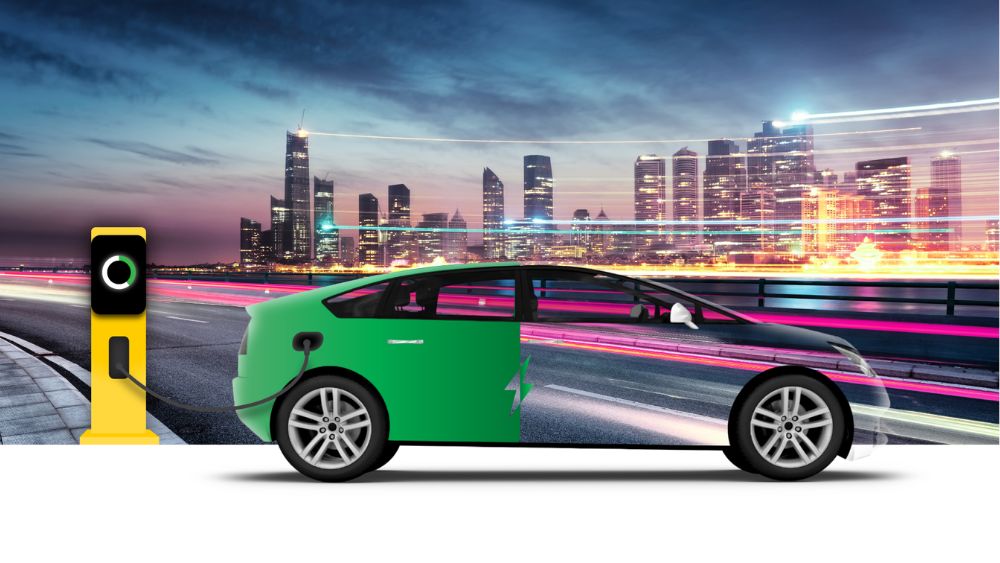| | | | | | | Presented By Hertz | | | | Axios What's Next | | By Jennifer A. Kingson, Joann Muller and Alex Fitzpatrick · Jan 19, 2023 | | The country's mayors acknowledge climate change is a problem, but they're split on how to tackle it without risking their jobs, Jennifer reports today. - 🎧 Out now: Elon Musk vs. Twitter: Cracks in the Empire, examining Musk's first few months as Twitter's CEO. Listen here.
Today's newsletter is 1,106 words ... 4 minutes. | | | | | | 1 big thing: Mayors vs. climate change |  Data: 2022 Menino Survey of Mayors. Note: Respondents were able to select two options. Chart: Alice Feng/Axios Many mayors want to take forceful steps to combat climate change, Jennifer A. Kingson reports, but fear such moves would be political poison, a new poll shows. - They do favor less controversial steps, like replacing gas-guzzling city vehicles with electric alternatives and supporting solar power, according to the first findings from the 2022 Menino Survey of Mayors, a nationally representative survey of U.S. mayors.
Why it matters: The brutal realities of the election cycle prompt many officials to gravitate toward policies that won't alienate broad swaths of voters — even in the face of extreme weather and climate risks that threaten their cities and constituents. Driving the news: The 2022 Menino Survey of Mayors, named for former Boston Mayor Tom Menino, found broad consensus that humans are contributing to climate change — nine out of 10 respondents agreed — but partisan differences in what to do about it. - Eighty-seven percent of Democratic mayors see a need for significant financial investments in climate action, vs. 43% of Republicans.
- Mayors on both sides of the aisle support replacing municipal vehicles with more fuel-efficient ones (75%) ...
- ... but Democrats are far more likely to support a variety of other measures, such as requiring that new construction be solar-ready or using local money to support private home energy upgrades.
The intrigue: The survey reflects a big gap between what mayors say they wish they could do, and what they think is realistic. - One mayor told the pollsters they "wanted to ban leaf blowers" but "did not have the support."
- Another — described as "a progressive big-city mayor" — said of oil and gas restrictions: "[We're] not doing it, but ultimately, [it's] the right thing to do."
- A third said restrictions on gas and oil would flop and that they "would be hung" for going after lawn tools.
Zoom in: Republican mayors overwhelmingly oppose restrictions on gas stoves, gas and oil heat, and gas-powered lawn tools. - They also reject moves aimed at reducing car use, such as congestion fees and higher parking prices.
- Between a third and a half of Democratic mayors also oppose such restrictions.
Yes, but: Nearly all mayors worry about climate impacts on their cities — only 3% said they did not. - Seventy-three percent of mayors agree that cities should be willing to expend resources and incur costs to address climate change.
- Fifty-five percent agree that making "real progress on climate issues" will require that residents "make real sacrifices." (26% disagree.)
- Mayors from both parties strongly support purchasing electric school buses, fire trucks, and public works vehicles.
The big picture: "Mayors in general, across party lines, are eager and committed to taking steps at the local level to fight climate change," David Glick, co-author of the Menino Survey and associate professor of political science at Boston University, tells Axios. - But "we're also seeing that there are limits — that they are constrained by politics, by money, and by other realities."
Share this story. |     | | | | | | 2. Dr. ChatGPT |  | | | Illustration: Maura Losch/Axios | | | | Generative AI platform ChatGPT recently passed all three parts of the U.S. Medical Licensing Examination — although just barely — as part of an experiment conducted by medical startup Ansible Health, Axios' Dan Primack reports. What they're saying: "There was so much excitement in the tech world when ChatGPT came out, so we wanted to see if it was just hype or useful," says Ansible CEO Ming Jack Po. - "As we started doing validation we were pretty amazed at the results. Not only at what it was getting right, but at how it was explaining itself."
Reality check: Don't expect AI to autonomously diagnose patients anytime soon. - Platforms like ChatGPT sometimes make confident yet false assertions, which could be especially dangerous in medical settings.
The bottom line: Plenty of people rely on "Dr. Google" for medical info. In the future, they may turn to "Dr. ChatGPT." Read the rest. |     | | | | | | 3. James Webb pays dividends |  | | | Photo illustration: Aïda Amer/Axios. Photo: NASA, ESA, CSA, and STScI | | | | Data from the James Webb Space Telescope (JWST) is hinting that the early universe may have more — and more complicated — galaxies than once thought, Axios' Miriam Kramer reports. Why it matters: A longstanding question in astronomy and astrophysics has centered on how the first generations of galaxies formed and evolved. What's happening: One study submitted to the Astrophysical Journal using JWST data looked at 850 galaxies that formed between 11 billion and 13 billion years ago, grouping them according to type — spiral, elliptical, irregular, or a combination. - The team found the proportion of galaxies by type was nearly the same as what's seen in the nearby universe today. This could mean these galaxies were relatively far along in their evolution, despite the universe's young age.
- Another study published in the Astrophysical Journal in December found 87 galaxies that may have been around just 200 million to 400 million years after the Big Bang. That's far more galaxies than scientists expected to see at this point in cosmic time.
Read the rest. |     | | | | | | A message from Hertz | | Hertz launches electrification initiative with U.S. cities | | |  | | | | Hertz Electrifies will bring fleets of electric vehicles, expanded charging capacity and EV skills training to cities. The strategy: Hertz is launching the program with the City of Denver and aims to bring up to 5,200 EVs and help expand charging infrastructure in the community. Learn more. | | | | | | 4. 📸 Strutting their stuff |  | | | Rendering courtesy of Boeing | | | | NASA is investing $425 million in Boeing to develop greener commercial jets, the agency announced Wednesday, Alex Fitzpatrick reports. - Boeing's "Transonic Truss-Braced Wing" concept, seen above in an artist's rendering, would use long, thin wings supported by struts.
- Such a design is meant to reduce drag, thereby decreasing fuel burn and improving efficiency.
What's next: NASA anticipates testing such aircraft by the end of the decade, in order for the tech to be considered for the next generation of single-aisle jetliners. The big picture: Aircraft manufacturers and airlines are aiming to reach net-zero emissions by 2050 — an ambitious goal that will require engineering solutions and other innovations, like sustainable fuel. |     | | | | | | 5. Apple delays AR glasses | | Apple's planned augmented reality (AR) glasses have been delayed, Bloomberg's Mark Gurman reports — but it's still reportedly planning to show off a bulkier mixed reality (MR) device before the year ends. Catch up fast: MR devices enable users to interact with digital objects that appear to be present in the real world, while AR devices layer helpful virtual information — say, walking directions — in the wearer's field of view. Why it matters: A handful of Apple rivals, including Microsoft and Google, have pushed AR/MR devices — although the technology has yet to truly go mainstream. - Apple has a knack for popularizing new gadget categories, even if it's rarely first to the party.
Yes, but: Past AR/MR devices — most famously Google Glass — fizzled amid a lack of interest. Reality check: Apple has yet to confirm it's working on any kind of AR or MR device. 💬 Alex's thought bubble: Some kind of "killer app" is needed here — if people can't figure out why a gadget will make their lives better or easier, they won't use it. |     | | | | | | A message from Hertz | | Bringing fleets of electric vehicles to Denver and beyond | | |  | | | | This week, Hertz Electrifies launched in Denver to accelerate the transition to electric vehicles. What this means: Hertz is partnering with America's cities, starting with Denver, to extend the benefits of electrification to underserved communities. Find out more. | | | | Big thanks to today's What's Next copy editor, Patricia Guadalupe. Was this email forwarded to you? Get your daily dose of What's Next by signing up here for our free newsletter. |  | | Are you a fan of this email format? Your essential communications — to staff, clients and other stakeholders — can have the same style. Axios HQ, a powerful platform, will help you do it. | | | | | | Axios thanks our partners for supporting our newsletters.
Sponsorship has no influence on editorial content. Axios, 3100 Clarendon Blvd, Arlington VA 22201 | | | You received this email because you signed up for newsletters from Axios.
To stop receiving this newsletter, unsubscribe or manage your email preferences. | | | Was this email forwarded to you?
Sign up now to get Axios in your inbox. | | | | Follow Axios on social media:    | | | | | |








No comments:
Post a Comment